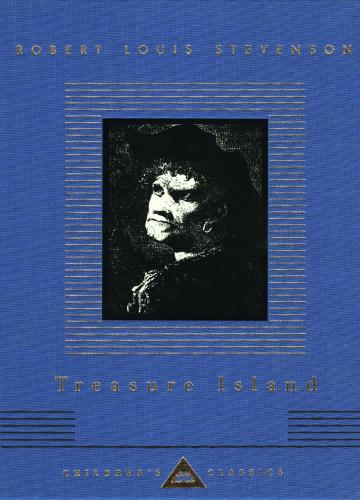
Treasure Island
(Hardback)
Available Formats
Paperback
Published: 1st January 2009
Hardback
Published: 27th November 1992
Paperback, Illustrated edition
Published: 1st March 2020
Paperback, 2nd Edition
Published: 16th April 2025
Hardback
Published: 25th July 2017
Paperback
Published: 1st June 2010
Paperback
Published: 15th January 2017
Hardback, Adapted edition
Published: 15th June 2021
Hardback, Adapted edition
Published: 1st December 2021
Hardback
Published: 17th October 2016
Paperback
Published: 1st August 2012
Paperback
Published: 23rd July 2018
Hardback
Published: 28th September 2009
Hardback, New edition
Published: 31st January 2022
Hardback
Published: 3rd August 2021
Hardback
Published: 1st November 2018
Paperback
Published: 3rd October 2014
Paperback
Published: 15th November 2015
Paperback
Published: 1st September 2021
Hardback
Published: 22nd October 2019
Publishing Details
Treasure Island
By (Author) Robert Louis Stevenson
Everyman
Everyman's Library Children's Classics
27th November 1992
29th October 1992
United Kingdom
Classifications
Children
Fiction
Childrens / Teenage fiction: Action and adventure stories
823.8
Runner-up for The BBC Big Read Top 100 2003
Physical Properties
Hardback
320
Width 163mm, Height 211mm, Spine 23mm
549g
Description
Fifteen men on the dead man's chest- Yo-ho-ho, and a bottle of rum! When young Jim Hawkins discovers a map showing the way to Captain Flint's treasure, he and Squire Trelawney set sail on the Hispaniola to search for the gold. Little do they know that among their crew is the dastardly pirate Long John Silver. Silver has a devious plan to keep the gold all to himself. Can brave Jim outwit the most infamous pirate ever to sail the high seas Will he escape from Treasure Island alive
Author Bio
Robert Louis Stevenson was born in Edinburgh in 1850. Chronically ill with bronchitis and possibly tuberculosis, Stevenson withdrew from Engineering at Edinburgh University in favour of Studying Law. Although he passed the bar and became an advocate in 1875, he knew that his true work was as a writer. Between 1876 and his death in 1894, Stevenson wrote prolifically. His published essays, short stories, fiction, travel books, plays, letters and poetry number in dozens. The most famous of his works include Travels With A Donkey in the Cevennes (1879), New Arabian Nights (1882), Treasure Island (1883), The Strange Case of Doctor Jekyll and Mr Hyde (1887), Thrawn Janet (1887) and Kidnapped (1893). After marrying Fanny Osbourne in 1880 Stevenson continued to travel and to write about his experiences. His poor health led him and his family to Valima in Samoa, where they settled. During his days there Stevenson was known as 'Tusitala' or 'The Story Teller'. His love of telling romantic and adventure stories allowed him to connect easily with the universal child in all of us. 'Fiction is to grown men what play is to the child,' he said. Robert Louis Stevenson died in Valima in 1894 of a brain haemorrhage.
